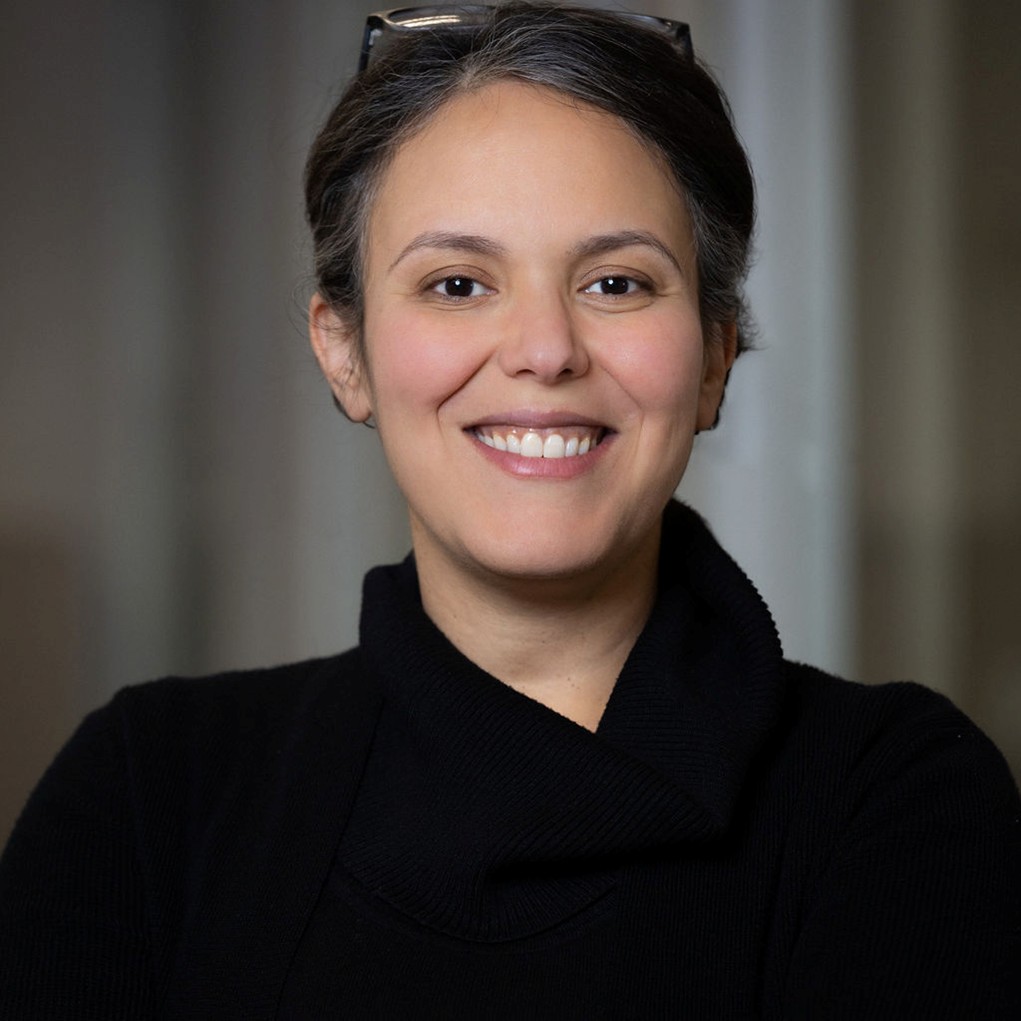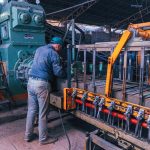A recent survey revealed that 88% of American parents believe AI knowledge will be crucial for their child's future success, yet 72% are concerned about AI's impact on their children. Perhaps more telling, 25% of parents fear AI might undermine their child's ability to think independently. These conflicting feelings reflect a broader challenge facing families today: how to prepare children for an AI-driven world without losing the human qualities that define authentic leadership and innovation.
Leen Kawas, Managing General Partner at Propel Bio Partners, brings a unique perspective to this modern parenting dilemma. Having navigated the male-dominated biotech industry as both an entrepreneur and investor, she understands what it takes to thrive in environments where technology and human insight must work together. Her experience building companies and her role as a mother converge in a philosophy focused on preparing children to excel alongside AI, not compete against it.
The Reality of AI in Daily Life
The integration of AI into homes and schools has been swift, and parents are scrambling to keep up. About 81% of parents say they haven't heard whether AI is part of their child's curriculum, and nearly half admit they "don't know where to start" in understanding AI. This knowledge gap is forcing parents to seek out resources and conversations on their own.
Kawas's technical background and experience in drug and clinical development give her valuable insight into this challenge. "AI enables us to bring a number of different data to empower more accurate and comprehensive decision-making," she notes, but this same capability requires users to understand the limitations and potential biases in AI-generated information.
The biotech industry's emphasis on rigorous validation processes provides a useful model for parents. Just as Kawas has spent years ensuring that drug development processes meet the highest standards of evidence and safety, parents need to teach children to fact-check AI-generated content and understand when algorithmic responses might be incomplete or biased.
Building Independence in a Connected World
Kawas's parenting philosophy reflects lessons learned from her professional journey. "I want my daughter to be comfortable and confident in her choices, and do it," she has said, emphasizing agency and self-determination alongside technical competence. This approach becomes particularly important as AI tools become more sophisticated at providing instant answers and solutions.
Many parents are adopting what experts call a "gardening" approach to parenting, providing rich environments for children to grow into their authentic selves rather than molding them to fit predetermined patterns. This means encouraging unique interests and giving children appropriate choices so they learn to make decisions and build confidence in who they are.
Families are collaboratively setting media rules and routines, with parents and children sitting down together to draft agreements on screen use and device-free times. The key is involving children in rule-making to give them a voice and sense of ownership over their tech habits, supporting autonomy rather than passive compliance.
Kawas's international background and experience navigating different cultural contexts highlight the importance of maintaining strong individual identity. Her journey from Jordan to becoming a prominent American biotech leader demonstrates how authentic perspectives and diverse thinking lead to innovative solutions.
Critical Thinking as the New Literacy
The concern about "cognitive offloading" where children rely on AI instead of using their own analytical skills, is driving parents to double down on teaching kids how to think, not just what to think. Forward-thinking parents are introducing basic AI literacy at home, explaining in simple terms how tools like Siri or ChatGPT work and their limitations.
Kawas's patient-centric philosophy in biotechnology offers a parallel framework for this challenge. Just as she emphasizes understanding the human elements behind scientific data, parents must teach children to look beyond surface-level AI responses to understand underlying logic and potential biases.
When children use AI for homework or information, parents are emphasizing verification skills. If a student asks ChatGPT for help on a history essay, parents prompt them to check claims against textbooks or reputable websites. This normalizes the habit of treating AI-generated answers as starting points for inquiry, not final truths.
Some parents and teachers are adapting assignments to require deeper engagement than generic AI responses can provide. They ask children to relate lessons to personal experiences, solve hands-on problems, or debate ethical scenarios. These open-ended, nuanced challenges force kids to use reasoning skills that AI struggles with.
Preserving Creativity and Human Innovation
Kawas's experience in biotechnology demonstrates how human creativity remains essential even in highly technical fields. Her success stems from bringing unique perspectives to complex challenges, not from following algorithmic recommendations. This experience informs her approach to raising a daughter who can navigate an increasingly complex technological landscape.
Parents are carving out plenty of screen-free play time, recognizing unstructured play as crucial for creativity and problem-solving skills. Building forts, inventing games, or doing art projects allow children to be makers, not just consumers. Even in 2025's high-tech context, many families find "the real world itself is captivating enough" for kids' curiosity.
Rather than banning AI, parents are teaching kids to use AI tools in active, creative ways. Children might use an AI image generator to visualize a character they imagine, then refine the drawing by hand. Or they could ask an AI for story prompts and then write their own story from that seed. The key is framing AI as "just another art supply" that supports rather than replaces imagination.
Parents are putting more emphasis on the creative process rather than the product. Whether a child is coding a simple game or writing a song, parents praise effort, experimentation, and even failures as learning opportunities. This builds creative confidence and teaches adaptability.
Emotional Intelligence in a Digital World
Leen’s leadership approach emphasizes the human elements that drive successful innovation. Her patient-centric philosophy recognizes that behind every data point lies a human story requiring empathy and understanding. This perspective becomes crucial when raising emotionally intelligent children in an AI-dominated environment.
One notable shift in parenting is renewed commitment to family time without devices. Parents report that screen-free periods like daily dinner or game nights allow children to practice conversation, active listening, and reading social cues. Research shows too much device time can displace human interaction, so parents consciously balance online and offline experiences.
Children primarily learn empathy by observing their parents. Many parents are modeling kindness and emotional openness, narrating their own emotions and showing caring acts. By seeing empathy in action, children pick up on how to be considerate and emotionally aware.
While there's concern that AI toys or virtual friends could stunt social development, some parents leverage technology thoughtfully to boost emotional intelligence. Families might watch a movie together and discuss characters' feelings and motives, using it as an opening to talk about empathy.
Preparing for Uncertainty
Leen Kawas's work at Propel Bio Partners involves identifying and supporting early-stage companies working on breakthrough technologies. This experience requires evaluating potential futures and making decisions despite incomplete information. These same skills prove valuable for parents trying to prepare children for a world that will look dramatically different from today.
The venture capital perspective emphasizes identifying unique strengths and finding ways to apply them to emerging opportunities. Kawas's success stems from recognizing how her scientific background and entrepreneurial instincts could address unmet needs in biotechnology. Parents can encourage similar thinking by helping children identify their distinctive talents while remaining open to unexpected applications.
Parents are promoting a growth mindset by talking about the power of "yet" and praising effort over innate talent. When children struggle, parents frame it as a normal part of learning. This helps children become comfortable with challenges and less afraid of failure.
Many families turn everyday situations into problem-solving practice. If a toy breaks, instead of immediately buying a new one, parents ask, "How do you think we can fix it?" These small exercises build adaptive thinking and resilience.
The Integration Challenge
Perhaps the most significant insight from Kawas's career concerns the integration of human judgment with technological capabilities. Her work in biotechnology demonstrates how AI and machine learning can enhance human decision-making without replacing the need for empathy, creativity, and ethical reasoning.
Rather than viewing AI as either completely beneficial or threatening, parents are helping children develop nuanced understanding of when and how to leverage AI tools while maintaining their own agency and judgment. Kawas's patient-centric philosophy provides a valuable framework: just as successful biotech companies must balance technological capabilities with human needs and values, children must learn to use AI tools in service of human flourishing.
The approach that's emerging emphasizes collaboration between humans and AI rather than competition. Parents are teaching children to see AI as a powerful assistant that can handle routine tasks, freeing up human intelligence for higher-order skills like analysis, innovation, and ethical judgment.
Looking Ahead
Leen's vision reflects broader aspirations for children growing up in this transformative era: to be leaders who can navigate uncertainty with confidence, innovate with purpose, and maintain their humanity while embracing technological possibilities. "I have a daughter, and she is my biggest inspiration. I want her to be the first person to do something – not the first woman," she says.
This balanced approach offers a roadmap for parents seeking to prepare their children not just for the jobs of tomorrow, but for lives of meaning and impact in an AI-integrated world. The key is fostering independence and confidence while providing children with the analytical tools and emotional support needed to thrive alongside intelligent machines.












